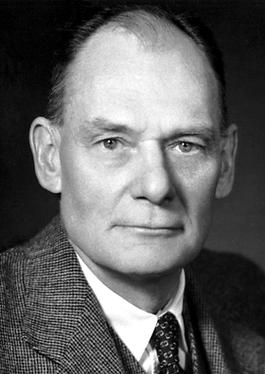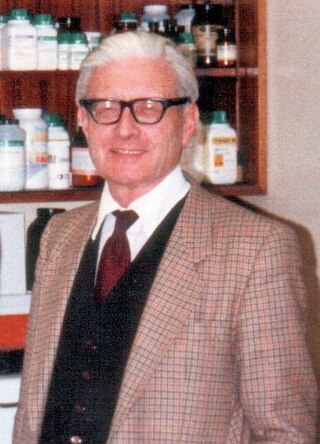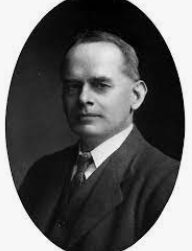Related Research Articles

John Franklin Enders was an American biomedical scientist and Nobel Laureate. Enders has been called "The Father of Modern Vaccines."

Thomas Huckle Weller was an American virologist. He, John Franklin Enders and Frederick Chapman Robbins were awarded a Nobel Prize in Physiology or Medicine in 1954 for showing how to cultivate poliomyelitis viruses in a test tube, using a combination of human embryonic skin and muscle tissue.

Constantin Levaditi was a Romanian physician and microbiologist, a major figure in virology and immunology, especially in the study of poliomyelitis and syphilis.

Thomas Henry Flewett, MD, FRCPath, FRCP was a founder member of the Royal College of Pathologists and was elected a Fellow of the Royal College of Physicians of London in 1978. He was chairman of the World Health Organization (WHO) Steering Committee on Viral Diarrhoeal Diseases, 1990–3, and a member until 1996. His laboratory in Birmingham was a World Health Organization Reference and Research Centre for Rotavirus Infections from 1980 until his retirement in 1987. He was an external examiner, visiting lecturer, and scientific journal editor. He was a member of the board of the Public Health Laboratory Service from 1977 to 1983 and was chairman of the Public Health Laboratory Service's Committee on Electron Microscopy from 1977 to 1987.

Otto Bollinger was a German pathologist born in Altenkirchen, Kusel, Rhineland-Palatinate.

Adelchi Negri was an Italian pathologist and microbiologist born in Perugia.
The Sir William Dunn School of Pathology is a department within the University of Oxford. Its research programme includes the cellular and molecular biology of pathogens, the immune response, cancer and cardiovascular disease. It teaches undergraduate and graduate courses in the medical sciences.
Geoffrey Lilley Smith FRS FMedSci FRSB is a British virologist and medical research authority in the area of Vaccinia virus and the family of Poxviruses. Since 1 October 2011 he is head of the Department of Pathology at the University of Cambridge and a principal research fellow of the Wellcome Trust. Before that, he was head of the Department of Virology at Imperial College London.

Andrew Jeremy Wakefield is a British fraudster, discredited academic, anti-vaccine activist, and former physician.

Biomedical sciences are a set of sciences applying portions of natural science or formal science, or both, to develop knowledge, interventions, or technology that are of use in healthcare or public health. Such disciplines as medical microbiology, clinical virology, clinical epidemiology, genetic epidemiology, and biomedical engineering are medical sciences. In explaining physiological mechanisms operating in pathological processes, however, pathophysiology can be regarded as basic science.

Henry Roy Dean, MD, LL.D, D.Sc, FRCP, also known as Prof. H. R. Dean, was a professor of Pathology at the University of Cambridge and Master of Trinity Hall, Cambridge.

Arthur Max Barrett, MD was a university morbid anatomist and histologist at the University of Cambridge, and an honorary consulting pathologist to the United Cambridge Hospitals and to the East Anglian Regional Hospital Board. He wrote numerous works, often cited in medical literature. The Barrett Room at Addenbrooke's Hospital is named in his honour, as is a Prize for the undergraduate Part II Pathology Tripos at the University of Cambridge. He was the father of Syd Barrett, a founding member of the band Pink Floyd.

David Maurice Surrey Dane, MRCS CRCP MB Bchir MRCP MRCPath FRCPath FRCP was a pre-eminent British pathologist and clinical virologist known for his pioneering work in infectious diseases including poliomyelitis and the early investigations into the efficacy of a number of vaccines. He is particularly remembered for his strategic foresight in the field of blood transfusion microbiology, particularly in relation to diseases that are spread through blood transfusion.
Robert Kirk (1905-1962) was a Scottish parasitologist and pathologist.
The Lancet MMR autism fraud centered on the publication in February 1998 of a fraudulent research paper titled "Ileal-lymphoid-nodular hyperplasia, non-specific colitis, and pervasive developmental disorder in children" in The Lancet. The paper, authored by now discredited and deregistered Andrew Wakefield, and twelve coauthors, falsely claimed causative links between the measles, mumps, and rubella (MMR) vaccine and colitis and between colitis and autism. The fraud was exposed in a lengthy Sunday Times investigation by reporter Brian Deer, resulting in the paper's retraction in February 2010 and Wakefield being struck off the UK medical register three months later. Wakefield reportedly stood to earn up to US$43 million per year selling diagnostic kits for a non-existent syndrome he claimed to have discovered. He also held a patent to a rival vaccine at the time, and he had been employed by a lawyer representing parents in lawsuits against vaccine producers.
A. Sheridan Delépine
Barrie Patrick Marmion was an English microbiologist who spent the majority of his career in Australia. He is known for his work on Q fever, and led the team that developed the first vaccine against the bacteria that causes it.

Percy George Shute was an English malariologist and entomologist who worked at the Mott Clinic at the Horton Hospital in Essex which was also known from 1952 to 1973 as the Malaria Reference Laboratory.

The Edinburgh City Hospital was a hospital in Colinton, Edinburgh, opened in 1903 for the treatment of infectious diseases. As the pattern of infectious disease changed, the need for in-patients facilities to treat them diminished. While still remaining the regional centre for infectious disease, in the latter half of the 20th century the hospital facilities diversified with specialist units established for respiratory disease, ear, nose and throat surgery, maxillo-facial surgery, care of the elderly and latterly HIV/AIDS. The hospital closed in 1999 and was redeveloped as residential housing, known as Greenbank Village.

Charles Powell White F.R.C.S. was an English pathologist and cancer researcher.
References
- 1 2 3 4 5 Edward, D. G. (1967). "Alan Powell Goffe. 9 July 1920 – 13 August 1966". The Journal of Pathology and Bacteriology. 93 (2): 729–734. doi:10.1002/path.1700930244. ISSN 1555-2039. PMID 4861404.
- ↑ "Obituary Notices". British Medical Journal. 2 (5512): 531–532. 27 August 1966. doi:10.1136/bmj.2.5512.531. PMC 1943558 .
- ↑ Yumpu.com. "Goffe, Alan Powell – Epsom College Archive Website". yumpu.com. Retrieved 2 October 2019.
- ↑ "BBCCaribbean.com | Between two worlds". BBC. Retrieved 2 October 2019.
- ↑ Group, British Medical Journal Publishing (24 January 1953). "Obituary: Sir T. DRUMMOND SHIELS, M.C., M.B., Ch.B". Br Med J. 1 (4803): 223. doi:10.1136/bmj.1.4803.223. ISSN 0007-1447. PMC 2015340 . PMID 13009153.
- ↑ "Supplement to the London Gazette" (PDF). thegazette.co.uk. 18 May 1951.
- 1 2 Pile, Peggy (13 October 1999). "Elisabeth Goffe". The Guardian. ISSN 0261-3077 . Retrieved 2 October 2019.
- ↑ New Scientist. 18 April 1963. p. 168.
- ↑ Norrby, E.; Lagercrantz, R.; Gard, S. (1965). "Measles Vaccination IV. Responses To Two Different Types Of Preparations Given As A Fourth Dose Of Vaccine". The British Medical Journal. 1 (5438): 813–817. ISSN 0007-1447. JSTOR 25405071. PMC 2166272 . PMID 14258844.
- ↑ Goffe, Gaia (2008). Between two worlds : the story of black British scientist Alan Goffe. Judith Goffe. London: Hansib. ISBN 978-1-906190-11-8. OCLC 245566442.